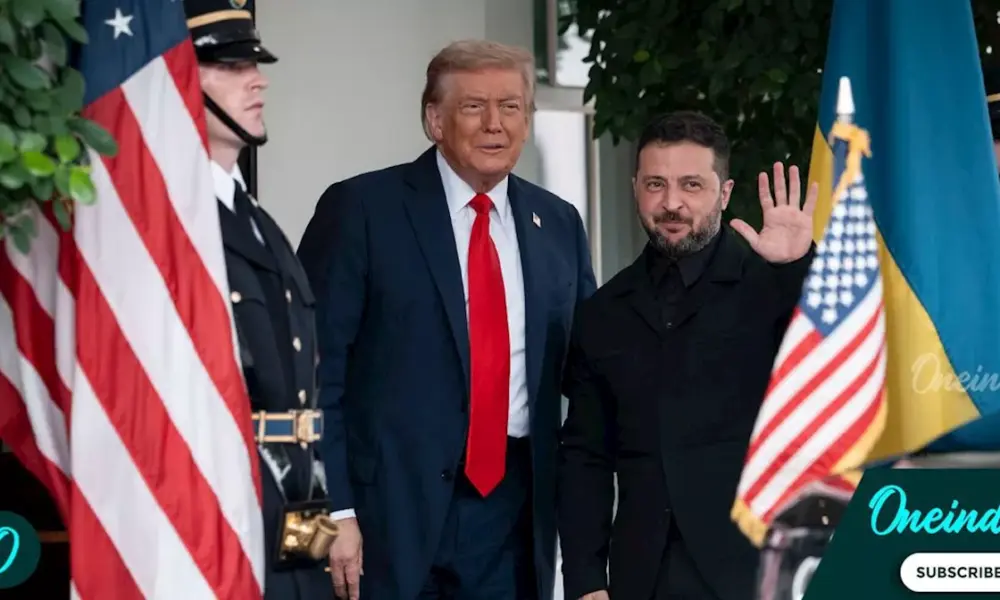Tensions escalated between the United States and Colombia following remarks made by former President Donald Trump, who accused Colombian President Gustavo Petro of being an “illegal drug leader.” Trump’s comments came alongside an announcement to end U.S. aid to Colombia, marking a significant shift in the long-standing relationship between the two nations.
In a social media post, Trump attacked Petro, labeling him “low rated and very unpopular,” and warned that the Colombian president should “close up” drug operations, or the United States would take action. While Trump did not provide evidence for his claims, he shared a video showing a boat engulfed in flames after a recent explosion in the Caribbean, which he linked to drug trafficking activities.
Colombian Response and Accusations
Petro, who is vocal on social media, quickly rejected Trump’s accusations. He defended his administration’s efforts to combat narcotics in Colombia, the world’s largest exporter of cocaine. “Trying to promote peace in Colombia is not being a drug trafficker,” Petro asserted, suggesting that Trump was misinformed by his advisers. He characterized Trump’s comments as “rude and ignorant” towards Colombia.
The Colombian Foreign Ministry responded to Trump’s statements, labeling them as a “direct threat to national sovereignty” and a proposal for an illegal intervention in Colombian territory. Defense Minister Pedro Sánchez emphasized that Colombia has dedicated significant resources to fighting drug trafficking and has lost lives in this battle.
Trump’s comments have raised concerns about a potential deterioration in U.S.-Colombian relations, especially as the U.S. has already increased pressure on neighboring Venezuela and its leader, Nicolás Maduro. U.S. naval ships and aircraft have been deployed in the region, with operations aimed at combating drug cartels.
U.S. Aid Cuts and Implications
The United States has historically been a key ally of Colombia, providing substantial aid. In the budget year ending September 30, 2025, Colombia received approximately $230 million in U.S. assistance, a significant reduction from over $700 million in previous years. Trump’s announcement to cut aid further complicates the military and diplomatic partnership at a time when Colombia faces escalating security challenges.
Commenting on the situation, Elizabeth Dickinson, a senior analyst for the Andes region at the International Crisis Group, expressed concern about the implications of Trump’s decision. She stated, “It is befuddling and profoundly unwise of the United States to alienate its strongest military partner in Latin America at a moment when tension between Washington and Venezuela are at its highest point in recent years.”
The recent U.S. military operations in the Caribbean, including a strike on September 16 that resulted in the death of Colombian fisherman Alejandro Carranza, have added to the friction. Petro condemned the attack, claiming that Carranza was simply fishing and had no ties to drug trafficking. He called for legal proceedings against the U.S. in international courts, stating that the U.S. had invaded Colombian territory.
In response to the escalating tensions, the Colombian government plans to prosecute a survivor of a recent U.S. strike involving a submersible allegedly carrying drugs. This survivor was repatriated to Ecuador, where authorities decided not to charge him.
The ongoing conflict surrounding drug trafficking and military operations highlights the complex nature of U.S.-Colombian relations. As both countries navigate this crisis, the potential impact on Colombia’s security capabilities remains a pressing concern. The future of cooperation between the two nations is uncertain, with Trump’s harsh rhetoric and aid cuts threatening a partnership that has been foundational for decades.







